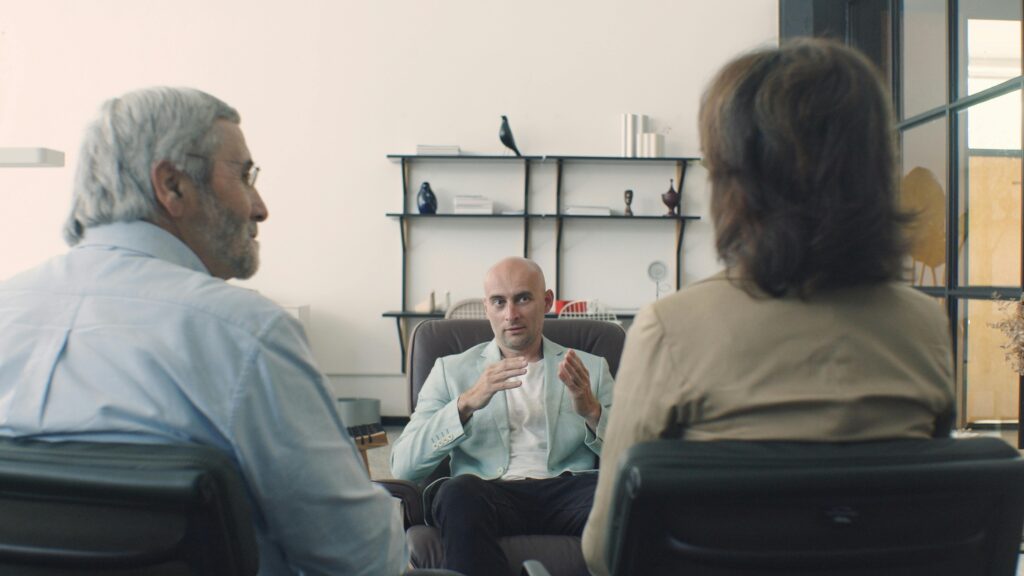Dementia begins long before obvious memory loss. You might struggle with a familiar recipe, get lost on drives you once knew, or find words slipping from your mind when you need them. These changes feel small at first, and family members notice the pattern before you do. If any of this sounds familiar, talk to your doctor. There is no cure yet, but getting diagnosed makes it easier to manage symptoms and plan for the future. Here are five early signs of dementia you can spot years before diagnosis.
Words Start Disappearing Mid-Sentence

People with early dementia often show signs of word-finding struggles, have trouble naming familiar objects, or call a watch something else. We all get tip-of-the-tongue moments, but with dementia, those pauses happen more often in ordinary conversation. Research suggests the brain can begin changing many years before diagnosis, sometimes up to 18 years earlier. If something feels off, talk with your healthcare provider.
Time Becomes Fuzzy and Confusing

Memory slips happen to everyone, says geriatrician Sevil Yasar. But repeated timing errors can point to early dementia. People may lose track of the day, date, or season. They may start missing appointments they once kept. Family members often spot these shifts first, so listen to their concerns and trust your own sense when something feels off. Simple tools can help. A wall calendar keeps dates visible. Phone reminders prompt important tasks. Daily check-ins keep routines steady.
Recent Events Vanish While Old Memories Stay Sharp

Memory troubles often begin with small everyday moments. You might clearly remember your wedding day but forget what you ate an hour ago. Watch for patterns rather than one-off slips. Keys showing up in odd places. You walk into a room and cannot recall why. You start dinner and leave the stove on. These gaps affect recent memory while older memories stay sharp. That contrast between them is often the clue. If forgetting daily tasks threatens safety or independence, talk with your doctor.
Familiar Tasks Suddenly Feel Impossible

After thirty years of cooking Sunday roast, someone may stand at the stove after browning the meat and feel completely lost. The recipe used to be automatic, but those movements no longer flow. Tasks that once happened together now come apart. The potatoes need one step while the vegetables need another, and the timing is just too much to handle. Doctors say this confusion often appears early. Watch if you recognise this in yourself or a loved one.
Getting Lost in Familiar Places

Navigation problems often show up early as well, sometimes long before other symptoms. Imagine your dad calling from three towns over, confused about where he is after driving to his usual coffee shop. If that were to happen, stay calm and ask him to pull over in a safe place while you work out his location. Doctors say dementia can affect the hippocampus and parietal cortex, the brain areas that map space, so once-familiar roads can suddenly feel strange.
Stairs and Furniture Become Obstacles

Using the same stairs for years, but suddenly you hesitate at the top, misjudge a step, or bump into low furniture? This could be early trouble with spatial awareness. These coordination slips appear early because the same regions that map space and depth are being affected by the disease, making distance harder to judge and raising fall risk. Healthcare professionals suggest getting an eye test, brightening rooms, adding contrast to steps, removing loose rugs, and asking an occupational therapist for home changes.
Read More: ‘I am losing my little girl to dementia’
Social Situations Feel Too Hard

People with signs of early-onset dementia often pull away from social situations because they become hard and tiring. They may struggle to follow conversations, find words, or remember names. Noisy or unfamiliar places can also feel confusing or overwhelming. Perhaps you notice your aunt is no longer attending that book club she enjoyed for years. You can be there for her by offering her gentle encouragement instead of pressure. You could suggest small, quiet gatherings to maintain her connections.
Patience Disappears and Frustration Takes Over

The disease can quietly change a person’s mood and personality in ways that catch families off guard. Someone who was patient may grow easily frustrated and snap over small things. If you or a family member who was once a sociable person pulls away unexpectedly or seems anxious in groups, consider having a chat with your family doctor. These shifts can feel quite sudden because the person still looks the same, but they are experiencing brain changes that affect emotion and behaviour, and not from personal choice.
Money Decisions Stop Making Sense

Scammers often target people with dementia because the condition makes them more vulnerable. Researchers have found that the entorhinal cortex connects areas controlling emotion and judgment. Dementia damages this region early, weakening memory and decision-making. Family members can help by gently monitoring bank statements, setting up automatic bill payments, limiting access to large amounts of cash, and asking to be involved in major financial decisions.
Time to See Your Doctor

Trust your gut. If you notice changes, make an appointment and bring someone you trust for support. Before the visit, write down concrete examples such as “forgot the stove was on twice this week” or “got lost driving to the grocery store,” and note when each began and how often it happens. Put together a list of all your medicines and the questions you want to ask. Your doctor may suggest simple cognitive tests or brain scans. Remember, catching early signs of dementia gives you more time to plan and arrange the right care.
Read More: 4 Dementia Symptoms That Occur Before Memory Loss

